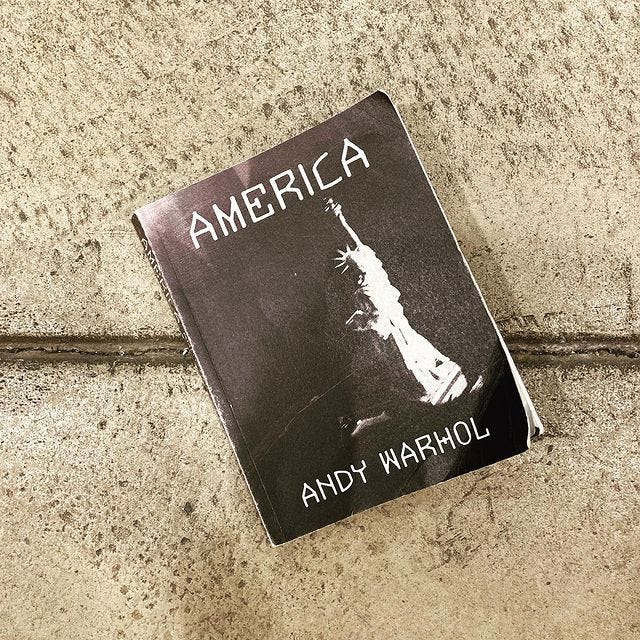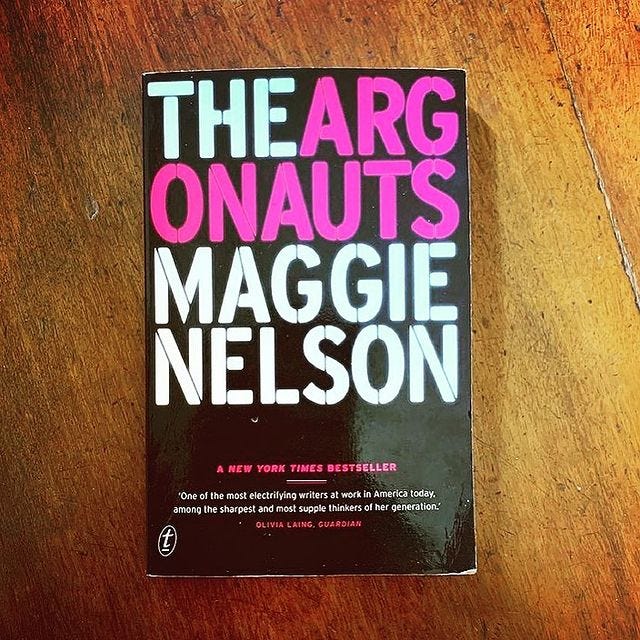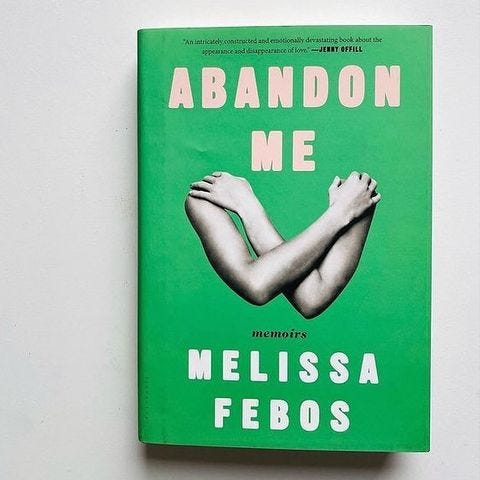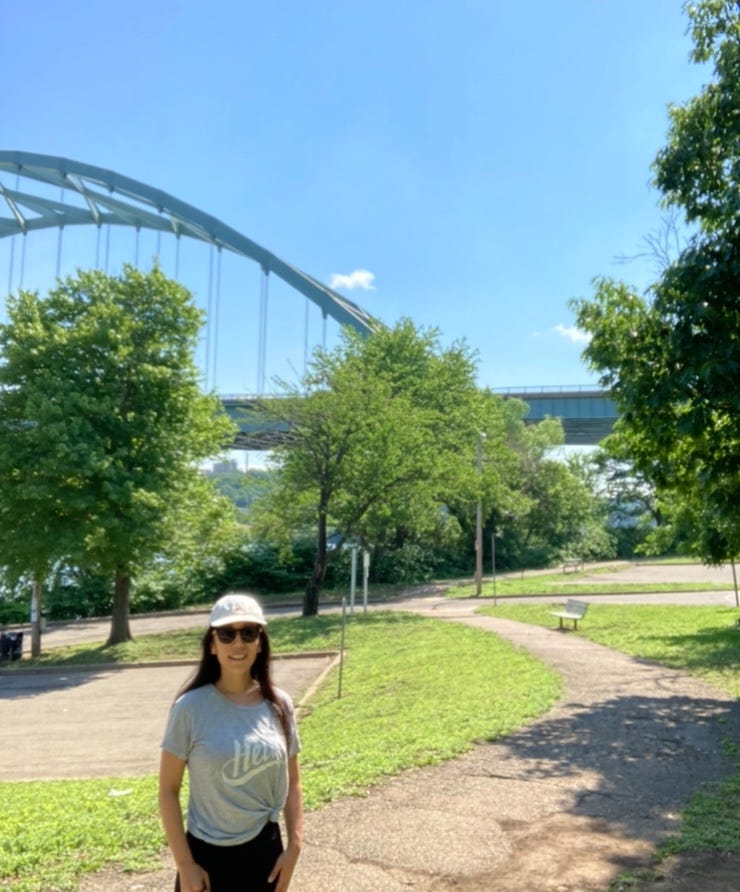Love notes from Siel is a weekly newsletter. If you love it, subscribe for free.
Dear friend —
What is your art appreciation style? Once, in my early twenties, my sister and I went to the Harvard Art Museums together and I got so engrossed in the first room — I think it was the Chinese section — that I didn’t realize my sister had gone missing. Then suddenly, she reappeared at my side, out of breath.
“How long do you think you’re going to be?” she said. “I’ve seen everything.”
“Already?” I was still on the first wall of the first gallery. “You don’t want to see the other exhibits?”
“I saw them. I was just upstairs.”
That’s when I realized she was still panting. “Did you just run through the museum?”
She paused then, considering: Was it possible that time-saving efficiency — seeing as much art in the shortest time possible, the eyes skimming over each piece just long enough to be able to technically say one had seen it — might not be the primary point of visiting a museum?
She’s since slowed down, while I’ve sped up a bit. Some years later, corralled in with a bunch of tourists at the Louvre in a massive line to get a quick glimpse of the Mona Lisa — there’s not much time for lingering when the crowd’s pushing you on — I wondered: What exactly am I doing here? There’s no way I’m going to get a deeper appreciation of the Mona Lisa through this experience. I and everyone else are basically only here to be able to say that I went to the Louvre and saw the Mona Lisa, technically.
I’ve been thinking about this a lot as I travel, because each new place with its recommended tourist attractions makes you contend with similar questions: Do I actually want to see this recommended thing, or do I just feel I should to check it off some invisible list?
And I wonder this about fellow travelers too — especially those focused on hitting specific goals, like visiting every state, or every country. Do they actually want to visit Palau, or do they just want to check it off the list? And if the latter, does the actual experience of Palau even matter?
And if it doesn’t matter, what’s the point?
Last week I was in Pittsburgh. I went to the Andy Warhol Museum and spent hours there — because I spotted a book on a bench, decided to browse through it, then, riveted, sat down to read it cover to cover while other museumgoers milled in and out, occasionally glancing over at me, curious. Was this near-immobile woman part of the exhibit?
The book I read was America, briefly reviewed below. I think you’d enjoy it too.
America by Andy Warhol (Harper & Row, 1985)
I’ve discovered belatedly that Andy was not only a fun artist but a fabulous writer too. America collects together photos from Andy’s trips across the country — many of famous artists and performers — alongside his casual, funny, yet philosophical musings on everything from fame to hot bodies to, of course, America itself.
“If you ever get a chance to travel around the rest of the country, you should try to do it, and especially you should try to stay for a while in each place and get a good look,” Andy writes — and his short takes on various cities and states are kind of like (dare I say it?) my love notes (I said it!). He promotes travel despite also writing this: “I’m the type who’d like to sit home and watch every party that I’m invited to on a monitor in my bedroom.”
Wait — wasn’t that all of us, all last year? It’s incredible how many of the subjects Andy touches on in this book — from police violence against Black people to environmental degradation — are still timely concerns. And it’s also fascinating how, political this book reads, despite the ironic detachment Andy was known for. It ends thusly: “We all come here from somewhere else, and everybody who wants to live in America and obey the law should be able to come too, and there’s no such thing as being more or less American, just American.” Read it if you love your politics alongside celebrity candids, deadpan humor, and a pop of philosophy.
Buy America from Bookshop
The Argonauts by Maggie Nelson (Graywolf, 2016)
Read a memoir written in a naked voice, detailing everything from getting fucked in the ass to emptying drains after top surgery, and you might think of the book as an intimate tell-all. But this memoir-in-snippets made me mostly wonder what Maggie chose not to disclose in the text. One section details Maggie and her lover negotiating over the book’s manuscript, coming to agreements about what can be left in, what must be edited, what taken out —
“Most of my writing usually feels to me like a bad idea, which makes it hard for me to know which ideas feel bad because they have merit, and which ones feel bad because they don’t,” Maggie writes. This book covers a lot of ground: motherhood, queer identity, gender theory, academia. It’s smart and nuanced, honest yet reticent — with disjunct fragments telling stories that are not uninhibited, exactly, but adept at performing uninhibitedness in a precise, controlled manner. Read it if you love Eve Sedgwick remixed with Pema Chodron, the grit of a shitty New York apartment juxtaposed against the cold language of critical theory.
Buy The Argonauts from Bookshop
Abandon Me by Melissa Febos (Bloomsbury, 2017)
I believe in love at first sight, though the object of such a love has to be not a real person but the fantasy of one — a simulacrum projected onto a stranger you can’t possibly know well enough to love for who they really are. Then, as you actually get to know the stranger, you begin to suspect they don’t at all match your fantasies, in fact they may even lack basic qualities like decency and kindness, yet you hold onto this stranger anyway because your love for that fantasy was — is — so strong —
This is what I thought about reading Melissa’s memoir in essays, largely about an all-encompassing affair she begins with a passionate woman — who turns out to be a selfish, controlling, manipulative, and gaslighting cheater. Isn’t it kind of unfortunate that we often fall in love with our fantasies so hard and so fast? If we didn’t, we’d save ourselves a lot of heartache — but maybe life would be less interesting too. Read it if you love the thrilling anxieties and insecurities created by a terrible lover more than the love itself.
Buy Abandon Me from Bookshop
Once a month, I share book recommendations. Shape it by recommending a read!
Happy Pride Month,
Siel
Three links you might love — the “all my friends are publishing new books except me” edition:
“Has my life changed since publishing my book? Yes, it’s changed a lot — but not because of the book.” That’s me, writing in an article about becoming a first-time author. Read it on p. 11 of the Bookish section of the Orange County Register (and other Southern California newspapers) — with interviews from Cassandra Lane and Mary Camarillo, authors of the newly published books We Are Bridges and The Lockhart Women, respectively.
“What does it mean when artists who’ve already been isolated by the pandemic self isolate intentionally at artist residency programs?” asks my friend Kristina Wong in an essay for MacDowell. Kristina sewed free face masks for people who needed them during the pandemic, and her book about the experience — The Auntie Sewing Squad Guide to Mask Making, Radical Care, and Racial Justice is out now from UC Press.
“The main character is me, but not me. She’s more fierce, outspoken. She is wilder,” writes my friend Brittany Ackerman in a LitHub essay about why she wrote a novel instead of a memoir. Her new book, The Brittanys, is now out from Vintage.







